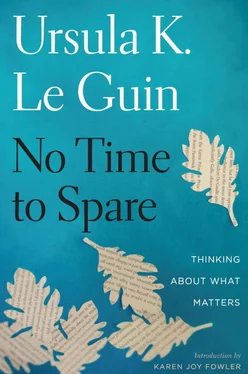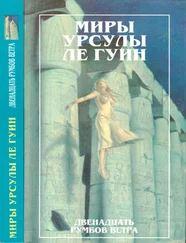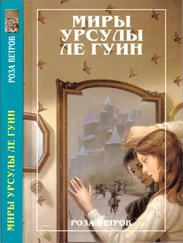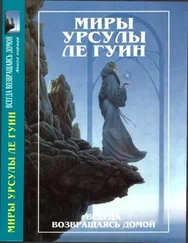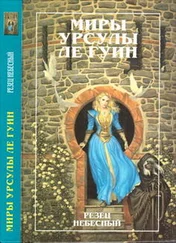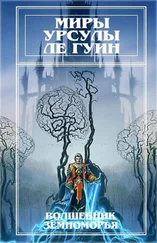I believe a good story, plotted or plotless, rightly told, is satisfying as such and in itself. But here, with “rightly told,” is my conundrum or mystery. Inept writing lames or cripples good narrative only if it’s truly inept. An irresistibly readable story can be told in the most conventional, banal prose, if the writer has the gift.
I read a book last winter that does an absolutely smashing job of storytelling, a compulsive page-turner from page 1 on. The writing is competent at best, rising above banality only in some dialogue (the author’s ear for the local working-class dialect is pitch-perfect). Several characters are vividly or sympathetically portrayed, but they’re all stereotypes. The plot has big holes in it, though only one of them really damages credibility. The story line: an ambitious white girl in her early twenties persuades a group of black maids in Jackson, Mississippi, in 1964, to tell her their experiences with their white employers past and present, so that she can make a book of their stories and share them with the world by selling it to Harper and Row, and go to New York and be rich and famous. They do, and she does. And except for a couple of uppity mean white women getting some egg on their face, nobody suffers for it.
All Archimedes wanted was a solid place to put the lever he was going to move the world with. Same with a story trajectory. You can’t throw a shot put far if you’re standing on a shaky two-inch-wide plank over a deep, dark river. You need a solid footing.
Or do you?
All this author had to stand on is a hokey, sentimental notion, and from it she threw this perfect pitch!
Seldom if ever have I seen the power of pure story over mind, emotion, and artistic integrity so clearly shown.
And I had to think about it, because a few months earlier, I’d read a book that brilliantly demonstrates a narrative gift in the service of clear thought, honest feeling, and passionate integrity. It tells an extremely complicated story extending over many decades and involving many people, from geneticists cloning cells in cloistered laboratories to families in the shack-houses of black farming communities. The story explains scientific concepts and arguments with great clarity while never for a moment losing its onward impetus. It handles the human beings it involves with human compassion and a steady, luminous ethical focus. The prose is of unobtrusive excellence. And if you can stop reading it, you’re a better man than I am, Gunga Din. I couldn’t stop even when I got to the notes—even when I got to the index. More! Go on! Oh please tell me more!
I see a huge difference in literary quality between these two hugely readable books, which certainly has to do with specific qualities of character—among them patience, honesty, risk-taking.
Kathryn Stockett, the white woman who wrote The Help, tells of a white girl persuading black women to tell her intimate details of the injustices and hardships of their lives as servants—a highly implausible undertaking in Mississippi in ’64. When the white employers begin to suspect this tattling, only an equally implausible plot trick lets the black maids keep their jobs. Their sole motivation is knowing their stories will be printed; the mortal risk they would have run in bearing such witness, at that place in that year, is not seriously imagined, but merely exploited to create suspense. White Girl’s motivation is a kind of high-minded ambition. Her risks all become rewards—she loses malevolent friends and a bigoted boyfriend and leaves Mississippi behind for a brilliant big-city career. The author’s sympathy for the black women and knowledge of their everyday existence is evident, but, for me, it was made questionable by her assumption of a right to speak for people without earning that right, and killed dead by the wish-fulfilling improbability of her story.
Rebecca Skloot, the white woman who wrote The Immortal Life of Henrietta Lacks, spent years researching a vastly complex web of scientific research, thefts, discoveries, mistakes, deceits, cover-ups, exploitations, and reparations, while at the same time trying, with incredible patience and good will, to gain the trust of the people most directly affected by the one human life with which all that research and profit-making began—the family of Henrietta Lacks. These were people who had good reason to feel that they would be endangered or betrayed if they trusted any white person. It took her literally years to win their confidence. Evidently she showed them that she deserved it by her patient willingness to listen and learn, her rigorous honesty, and her compassionate awareness of who and what was and is truly at risk.
“Of course her story is superior,” says Mr. Gradgrind. “It’s nonfiction—it’s true. Fiction is mere hokum.”
But oh, Mr. Gradgrind, so much nonfiction is awful hokum! How bad and mean my mommy was to me before I found happiness in buying a wonderful old castle in Nodonde and fixing it up as an exclusive gourmet B&B while bringing modern educational opportunities to the village children…
And contrarily, we can learn so much truth by reading novels, such as the novel in which you appear, Mr. Gradgrind.
No, that’s not where the problem lies. The problem—my problem—is with the gift of story.
If one of the two books I’ve been talking about is slightly soiled fluff while the other is solid gold, how come I couldn’t stop reading either of them?
It Doesn’t Have to Be the Way It Is
June 2011
The test of fairyland [is that] you cannot imagine two and one not making three but you can easily imagine trees not growing fruit; you can imagine them growing golden candlesticks or tigers hanging on by the tail.
THE QUOTATION, FROM G. K. Chesterton, is from an interesting article by Bernard Manzo in the Times Literary Supplement of June 10, 2011 (he didn’t give the source in Chesterton’s writings). It got me to thinking about how imaginative literature, from folktale to fantasy, operates, and to wondering about its relationship to science, though I’ll only get to that at the very end of this piece.
The fantastic tale may suspend the laws of physics—carpets fly; cats fade into invisibility, leaving only a smile—and of probability—the youngest of three brothers always wins the bride; the infant in the box cast upon the waters survives unharmed—but it carries its revolt against reality no further. Mathematical order is unquestioned. Two and one make three, in Koschei’s castle and Alice’s Wonderland (especially in Wonderland). Euclid’s geometry—or possibly Riemann’s—somebody’s geometry, anyhow—governs the layout. Otherwise incoherence would invade and paralyze the narrative.
There lies the main difference between childish imaginings and imaginative literature. The child “telling a story” roams about among the imaginary and the half-understood without knowing the difference, content with the sound of language and the pure play of fantasy with no particular end, and that’s the charm of it. But fantasies, whether folktales or sophisticated literature, are stories in the adult, demanding sense. They can ignore certain laws of physics but not of causality. They start here and go there (or back here ), and though the mode of travel may be unusual, and here and there may be wildly exotic and unfamiliar places, yet they must have both a location on the map of that world and a relationship to the map of our world. If not, the hearer or reader of the tale will be set adrift in a sea of inconsequential inconsistencies, or, worse yet, left drowning in the shallow puddle of the author’s wishful thinking.
It doesn’t have to be the way it is. That is what fantasy says. It doesn’t say, “Anything goes”—that’s irresponsibility, when two and one make five, or forty-seven, or whuddevva, and the story doesn’t “add up,” as we say. Fantasy doesn’t say, “Nothing is”—that’s nihilism. And it doesn’t say, “It ought to be this way”—that’s utopianism, a different enterprise. Fantasy isn’t meliorative. The happy ending, however enjoyable to the reader, applies to the characters only; this is fiction, not prediction and not prescription.
Читать дальше
